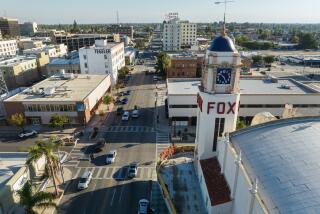Drew May Not Be Salvageable
When the Martin Luther King Jr./Drew Medical Center closed its trauma unit two months ago on orders from the Los Angeles County Board of Supervisors, protesters predicted disaster. But no patients have died as a direct result of the closure.
The true test will come this summer, when car accidents and shootings typically increase. The county’s success so far in finding other hospitals to treat the critically ill and injured is worth noting, not to prove the critics wrong -- they were right to worry -- but to show what can be achieved by thorough, level-headed planning. It’s a lesson worth remembering as the supervisors once again try to separate politics from patient care at the long-troubled King/Drew.
Closing the trauma unit was intended to relieve pressure and allow administrators, doctors and nurses to devote their full time and attention to the hospital’s many problems. Even so, over the same two months federal regulators launched investigations into five more deaths tied to medical mistakes. The acting pediatrics chairman resigned after allegedly working at his private practice on county time. And The Times reported that a radiologist who claimed to have worked 23 hours a day, seven days a week for a year had cost the county $1.3 million.
What is most astounding about this latest litany of woes is that moonlighting and time-card tampering continued to occur under the glare of intense federal, county and newspaper scrutiny. No one expects a hospital as troubled as King/Drew to be turned around easily or quickly. But when employees who know the hospital is under a microscope allegedly continue to maltreat patients and steal from taxpayers, it’s fair to wonder whether it can be fixed at all. Surely the supervisors must be asking themselves that question as they pay $13.2 million for an outside management team to run the hospital for a year and as they spend hundreds of thousands each week on temporary staff.
Clearly, more tough decisions lie ahead. Today the supervisors are expected to revisit the question of severing the county hospital’s ties with the private, equally troubled Charles R. Drew University of Medicine, which runs its doctor-training program. And once again, they are expected to put off a decision on the highly controversial step. They shouldn’t.
We’re not trying to make Drew the scapegoat here; the county is ultimately responsible for the hospital’s failings. But it can’t be responsible for saving both it and Drew.
Drew’s supporters say that King/Drew needs to remain a teaching hospital so that it can be staffed by residents. If it were to downsize to a community hospital, goes that argument, it would be impossible to recruit doctors to practice in such a low-income area.
Funny, we thought that was what Drew was supposed to have been producing for the last 30 years -- doctors who were committed to working in poor urban neighborhoods.
The lesson the supervisors should have learned from closing the trauma center was not to try to avoid controversy, but to plan for the aftermath.
More to Read
Start your day right
Sign up for Essential California for news, features and recommendations from the L.A. Times and beyond in your inbox six days a week.
You may occasionally receive promotional content from the Los Angeles Times.






